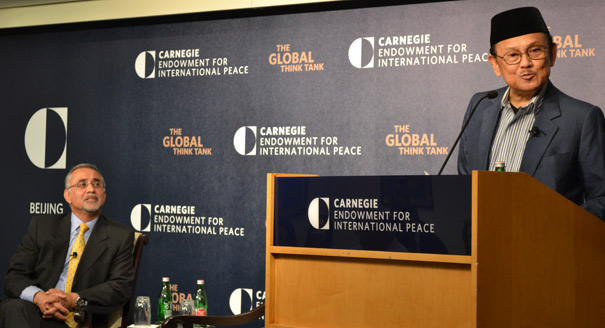Registration
You will receive an email confirming your registration.
Known as the “father of democracy” in Indonesia, former President B.J. Habibie led Indonesia’s democratization process beginning in 1998, making bold reforms toward political openness and decentralization. Thanks in part to his efforts, Indonesia is emerging as one of Asia’s foremost democracies and rising powers. Habibie joined Carnegie President Jessica T. Mathews to discuss the current challenges and future prospects of Indonesian democracy.
B.J. Habibie
B.J. Habibie was the president of the Republic of Indonesia from 1998 to 1999. The third president after independence, Habibie played a key role in stabilizing the country following President Suharto’s resignation and was the source of major political, social, and economic reforms in the post-Suharto era.
An Interview With Former Indonesian President B. J. Habibie
Jessica T. Mathews
Jessica T. Mathews was appointed president of the Carnegie Endowment for International Peace in 1997. Her career includes senior positions in the White House, State Department, Congress, Council on Foreign Relations, World Resources Institute, and the Washington Post.
